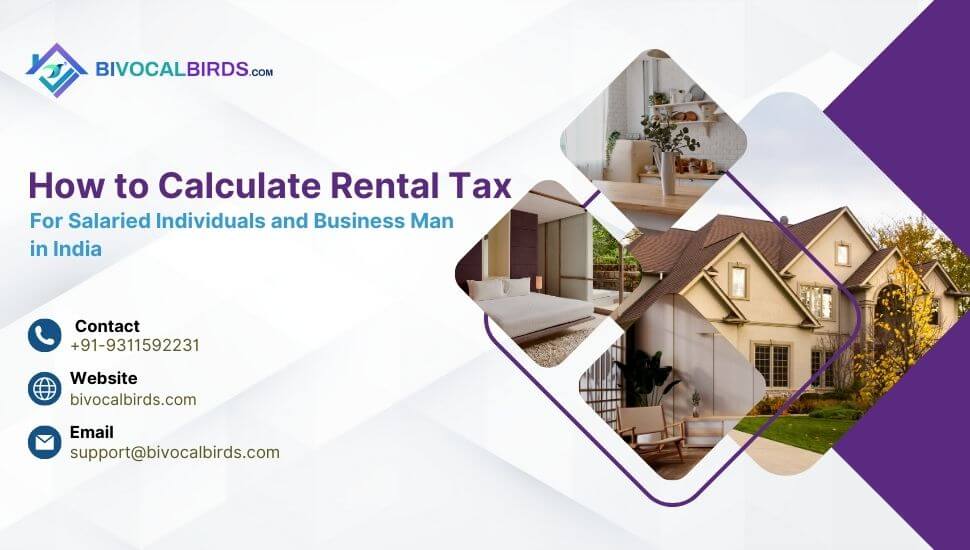How to Calculate Rental Tax for Salaried Individuals and Business Man in India
 10-May-2023
10-May-2023If you are a salaried individual who owns a rental property, you are required to pay income tax on the rental income you earn. The amount of tax you pay will depend on a number of factors, including the amount of rental income you earn, the cost of your property, and any deductions you are eligible to claim.
In this blog post, we will discuss the steps involved in calculating rental tax for salaried individuals in India. We will also provide some tips on how to reduce your rental tax liability is the perfect tax saving renting solution.
Also Read: How to Calculate Rental Tax in India
Step 1: Calculate Your Gross Annual Value
The first step in calculating your rental tax liability is to determine your gross annual value (GAV). The GAV is the total amount of rent you could reasonably expect to receive for your property if it were let on the open market.
To calculate your GAV, you will need to consider the following factors:
- The location of your property
- The size and condition of your property
- The amenities that are available in your property
- The rental rates for similar properties in your area
Once you have considered all of these factors, you can then estimate your GAV.
Step 2: Deduct Municipal Taxes
Once you have calculated your GAV, you can then deduct any municipal taxes that you have paid on your property. Municipal taxes are taxes that are levied by local governments on the ownership of property.
To deduct municipal taxes, you will need to keep a record of the amount of tax you have paid. You can usually find this information on your property tax bill.
Step 3: Deduct Standard Deduction
You can also deduct a standard deduction of 30% from your GAV. The standard deduction is a fixed amount that is allowed for expenses such as repairs, maintenance, and insurance.
To claim the standard deduction, you do not need to keep any records of your expenses.
Step 4: Calculate Your Net Annual Value
Once you have deducted municipal taxes and the standard deduction from your GAV, you will have calculated your net annual value (NAV). The NAV is the amount of income that you are actually liable to pay tax on.
Step 5: Calculate Your Income Tax Liability
Your income tax liability will depend on your NAV and your income tax slab. The income tax slabs are different for salaried individuals and for self-employed individuals.
If you are a salaried individual, you can find your income tax slab on the income tax website of the Government of India.
Step 6: Claim Deductions
There are a number of deductions that you may be eligible to claim against your rental income. Some of the most common deductions include:
- Interest on home loan
- Property taxes
- Repairs and maintenance
- Insurance
- Depreciation
To claim deductions, you will need to keep a record of all of your expenses. You can usually find this information in your bank statements, receipts, and invoices.
Step 7: File Your Income Tax Return
Once you have calculated your income tax liability and claimed any deductions that you are eligible for, you will need to file your income tax return. You can file your income tax return online or by post.
Also Read: 5 Smart Ways to Reduce Your Home Loan EMI Burden and Improve Your Financial Well-Being
Tips for Reducing Your Rental Tax Liability
There are a number of things you can do to reduce your rental tax liability. Some of the most effective tips include:
- Keep your property in good condition. The better condition your property is in, the less you will have to spend on repairs and maintenance.
- Claim all of the deductions that you are eligible for. Make sure you keep a record of all of your expenses so that you can claim them when you file your income tax return.
- Invest in energy-efficient appliances. Energy-efficient appliances can help you save money on your electricity bill, which can reduce your rental tax liability.
- Consider renting out your property for a longer period of time. If you rent out your property for a longer period of time, you will have less rental income to declare on your income tax return.
By following these tips, you can reduce your rental tax liability and save money on your income tax bill.



